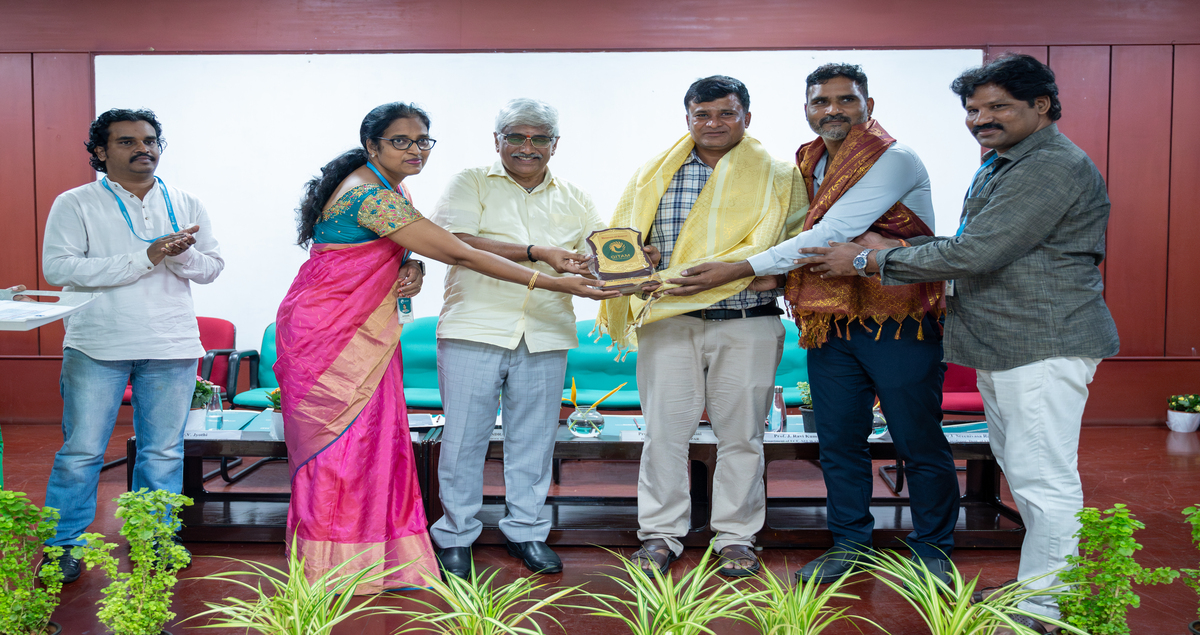AI and Machine Learning Transforming Modern Agriculture: Experts
Dr. Ritesh Kumar, Principal Scientist at CSIR-Central Scientific Instruments Organisation and ISenS, highlighted the transformative impact of artificial intelligence (AI) and machine learning (ML) on modern agriculture.
Speaking at a Faculty Development Program (FDP) on “Artificial Intelligence in Agriculture Health” at GITAM School of Technology on Friday, Dr. Ritesh explained how technologies like autonomous tractors, drones, and robotic systems are revolutionizing crop monitoring, targeted spraying, and predictive livestock health analysis.
“AI-driven precision agriculture not only optimizes the use of water, fertilizers, and pesticides, but also enhances crop health, increases yield, and promotes long-term sustainability,” he said. He added that these tools enable farmers to make data-driven decisions, reduce operational costs, and respond proactively to challenges such as climate variability and pest outbreaks.
The FDP was organized by the Electronics and ICT Academy of IIT Guwahati in collaboration with the Department of EECE, GITAM.
Prof. C. Bhardwaj, Principal Scientist at IARI, highlighted that AI is improving efficiency in crop breeding and supporting the development of climate-resilient crops, underscoring its crucial role in sustainably meeting future food production demands.
Dr. M. Ravibabu, Head of Crop Physiology at the Anakapalli Regional Agricultural Research Station, discussed the role of the Internet of Things (IoT) in monitoring soil and crop productivity. He noted that AI-assisted crop sowing can boost yields while lowering input costs.
Experts from IIT Ropar, Chandigarh University, NIT Warangal, and GITAM—including Prof. Mukesh Saini, Dr. Simrandeep Singh, Prof. J. Ravi Kumar, Prof. P. Bharani Chandra Kumar, and Dr. I. Sreenivasa Rao—also delivered sessions during the program.
The event concluded with a valedictory session led by GITAM School of Technology Director Prof. Nagendra Prasad, who distributed certificates to the participants.



